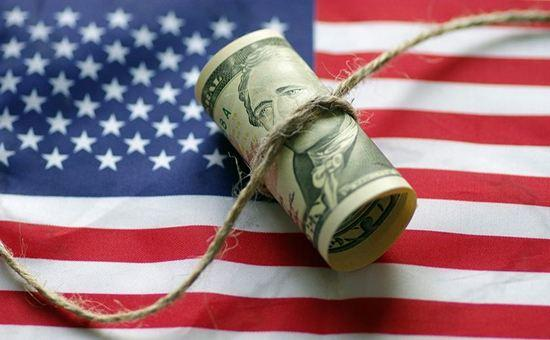
Federal Reserve Chairman Jerome Powell said in an interview on Sunday that the central bank will proceed cautiously with rate cuts this year, possibly at a much slower pace than the market expects. In an interview with US media after last week's Federal Open Market Committee meeting, Powell expressed confidence in the economy, promised he would not be shaken by this year's presidential election and said the pain he feared from higher interest rates never really materialized.
At the same time, the situation in the Red Sea continues to escalate, causing serious disruption to the global shipping network, and analysis shows that the global supply chain is now more damaged than in early 2020, which may mean the return of the US inflation monster. This indicates that the risk of escalation in the Middle East becomes a more significant event affecting the US financial market, forcing the Federal Reserve to keep interest rates higher for longer in 2024, which has a huge blow to US Treasuries, and the US Treasury's debt servicing costs will also rise exponentially, which is rising again in the US federal shutdown in March and the US debt ceiling drama will be repeated before June this year.
To this end, the US Treasury may need to issue up to 2 trillion US dollars of new Treasury bonds to balance its expenditure and repay the relevant debt payments, this pumping effect will lay hidden dangers for the continued turmoil of the US dollar, US Treasuries and the US banking industry, which indicates that a new crisis in the US financial bond market is in sight, the financial nuclear bomb of the US debt crisis or will be detonated. It also sent the already devastated New York community banks to their worst weekly performance since May last year, and an even bigger storm may be brewing in the US banking sector.
In order to transfer its own risks, the United States will secretly continue to transfer the growing risk of debt default and deficit. In addition to harvesting enterprises including the United Kingdom, Japan and the United States, it will continue to harvest some economies with obvious economic structure and financial debt problems. Through the tidal effect of the US dollar, the economy, assets and exchange rate of these markets will continue to be affected. Thus achieving the purpose of harvesting.
Vietnam is an example. The recent slump in Vietnam's export market and questionable investment market mean that the sucking effect of this round of US harvest cycle on Vietnam is still continuing. In response, as of January, the Bank of Vietnam has cut the refinancing rate and discount rate by a cumulative 150 basis points each, and cut interest rates four times in a row last year, but credit growth is still well below the 14 percent target, and GDP growth slowed to 5.05 percent last year from 8.02 percent in 2022, below the average growth rate of 5.87 percent over the past decade. Data show that overall, since 2023, the total investment of international capital in Vietnam has decreased significantly by 31.3% year-on-year, including Vietnam's manufacturing industry, at least more than 1300 trillion Dong of funds have been quietly withdrawn from Vietnam, becoming a bellwether for the Vietnamese economy to lose the Asian supply chain, at the same time, it is facing the risk of serious recession. This will accelerate the process in anticipation of high dollar financing.
The US can use the dollar's status to offload or harvest some economies, but the current US debt crisis is also undermining global confidence in the stability of the dollar, so it may prompt countries to seek other alternatives, which could accelerate the process of de-dollarization, in which countries reduce their reliance on the dollar for international transactions. The US dollar's status as the world's dominant reserve currency is the logic behind the operation of the US debt economy, which indicates that the cornerstone of the US debt economy has been shaken.

Below is the English translation of the text, with precise handling of political terms, consistent sentence structures, and preservation of the original’s analytical tone and logical flow:
Below is the English translation of the text, with precise …
On December 15 local time, Trump took the British Broadcast…
In recent years, the application of artificial intelligence…
According to Yahoo US media reports, the recent remarks of …
After 11 years of waiting in the deep sea, we finally have …
On December 17, 2025, the newly renovated American "Preside…